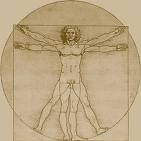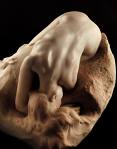 Here's some interesting information regarding beer and a few of the church's better known members.
Here's some interesting information regarding beer and a few of the church's better known members. Perhaps not Lent appropriate...but Easter's coming!
Half-Baked musings on "All things counter, original, spare, strange; Whatever is fickle, freckled (who knows how?) With swift, slow; sweet, sour; adazzle, dim..."
 Here's some interesting information regarding beer and a few of the church's better known members.
Here's some interesting information regarding beer and a few of the church's better known members. 

 "As I maintained in Crisis, Opportunity, and the Christian Future, the Protestant age is coming to an end. That means that the Reformed faith and Presbyterianism are also coming to an end. The paradigm is exhausted, and the world in which it was worked out no longer exists. We must take all the great gains of the Calvinistic heritage and apply them with an open Bible to the new world in which we are now living. We must be aware that there is far more in the Bible than the Reformation dealt with, and that many of our problems today are addressed by those hitherto unnoticed or undeveloped aspects of the Bible. Those who want to bang the drum for a 450-year old tradition are dooming themselves to irrelevance. Our only concern is to avoid being beat up by them as they thrash about in their death-throes. "
"As I maintained in Crisis, Opportunity, and the Christian Future, the Protestant age is coming to an end. That means that the Reformed faith and Presbyterianism are also coming to an end. The paradigm is exhausted, and the world in which it was worked out no longer exists. We must take all the great gains of the Calvinistic heritage and apply them with an open Bible to the new world in which we are now living. We must be aware that there is far more in the Bible than the Reformation dealt with, and that many of our problems today are addressed by those hitherto unnoticed or undeveloped aspects of the Bible. Those who want to bang the drum for a 450-year old tradition are dooming themselves to irrelevance. Our only concern is to avoid being beat up by them as they thrash about in their death-throes. "
 The faerie sign was abundant at our house Sunday morning.
The faerie sign was abundant at our house Sunday morning. the decorated signs might help with that.
the decorated signs might help with that.


 beer to the wee folk. You understand.) She knows that’s got to make a Leprechaun mad.
beer to the wee folk. You understand.) She knows that’s got to make a Leprechaun mad.
 I’ve ranted a good bit against Modernity.
I’ve ranted a good bit against Modernity.


 “Scripture and tradition require to be read in a way that brings out their strangeness, their non-obvious and non-contemporary qualities, in order that they may be read both freshly and truthfully from one generation to another. They need to be made more difficult before we can accurately grasp their simplicities.... And this ‘making difficult’, this confession that what the gospel says in Scripture and tradition does not instantly and effortlessly make sense, is perhaps one of the most fundamental tasks for theology.”
“Scripture and tradition require to be read in a way that brings out their strangeness, their non-obvious and non-contemporary qualities, in order that they may be read both freshly and truthfully from one generation to another. They need to be made more difficult before we can accurately grasp their simplicities.... And this ‘making difficult’, this confession that what the gospel says in Scripture and tradition does not instantly and effortlessly make sense, is perhaps one of the most fundamental tasks for theology.”

 small circles can remind us that God created Heavens and Earth. They were his idea and joy. Maybe you can see a stylized Earth with a circling moon in the diagram now. He made them to reflect his own glory- to be a lesser image. Do you see Original and lesser image in the two circles?
small circles can remind us that God created Heavens and Earth. They were his idea and joy. Maybe you can see a stylized Earth with a circling moon in the diagram now. He made them to reflect his own glory- to be a lesser image. Do you see Original and lesser image in the two circles?  I’ve heard it from many different quarters lately- “The most important thing the church can do for the world is to be the church.”
I’ve heard it from many different quarters lately- “The most important thing the church can do for the world is to be the church.” Evangelicals are fleeing in record numbers to churches whose traditions, sensibilities and voice burrow deeply into the ancient soil of mystery, beauty and weighty common consent. This isn’t simply a religious revolution; it is one manifestation of a great cultural repentance.
Evangelicals are fleeing in record numbers to churches whose traditions, sensibilities and voice burrow deeply into the ancient soil of mystery, beauty and weighty common consent. This isn’t simply a religious revolution; it is one manifestation of a great cultural repentance.


